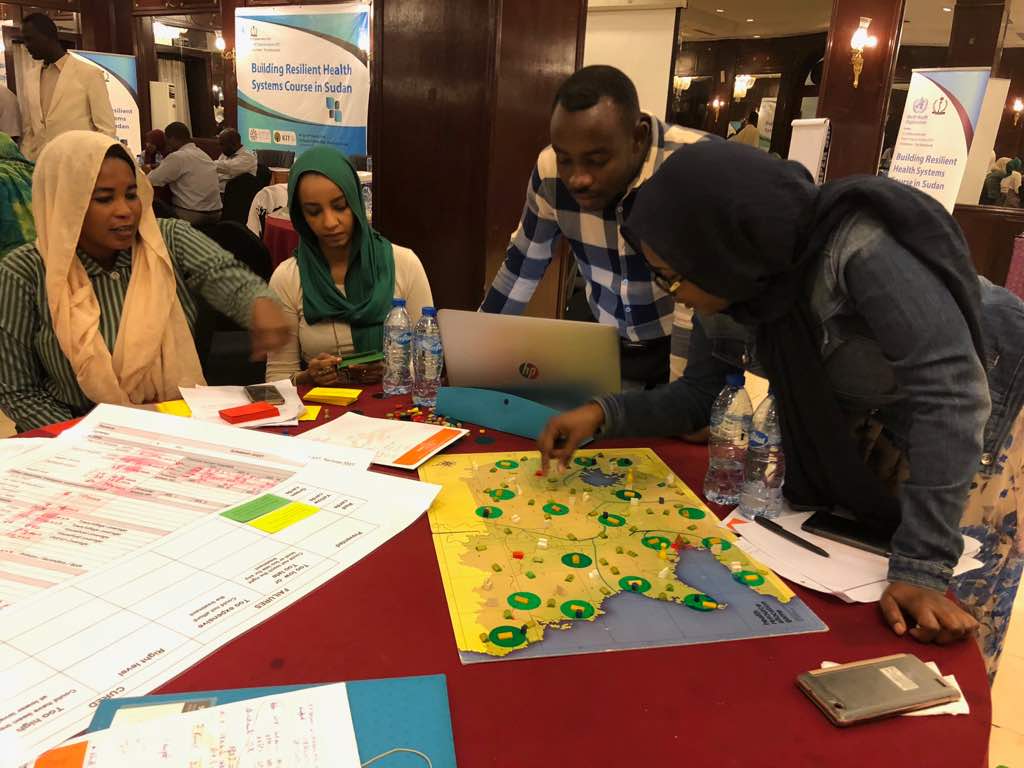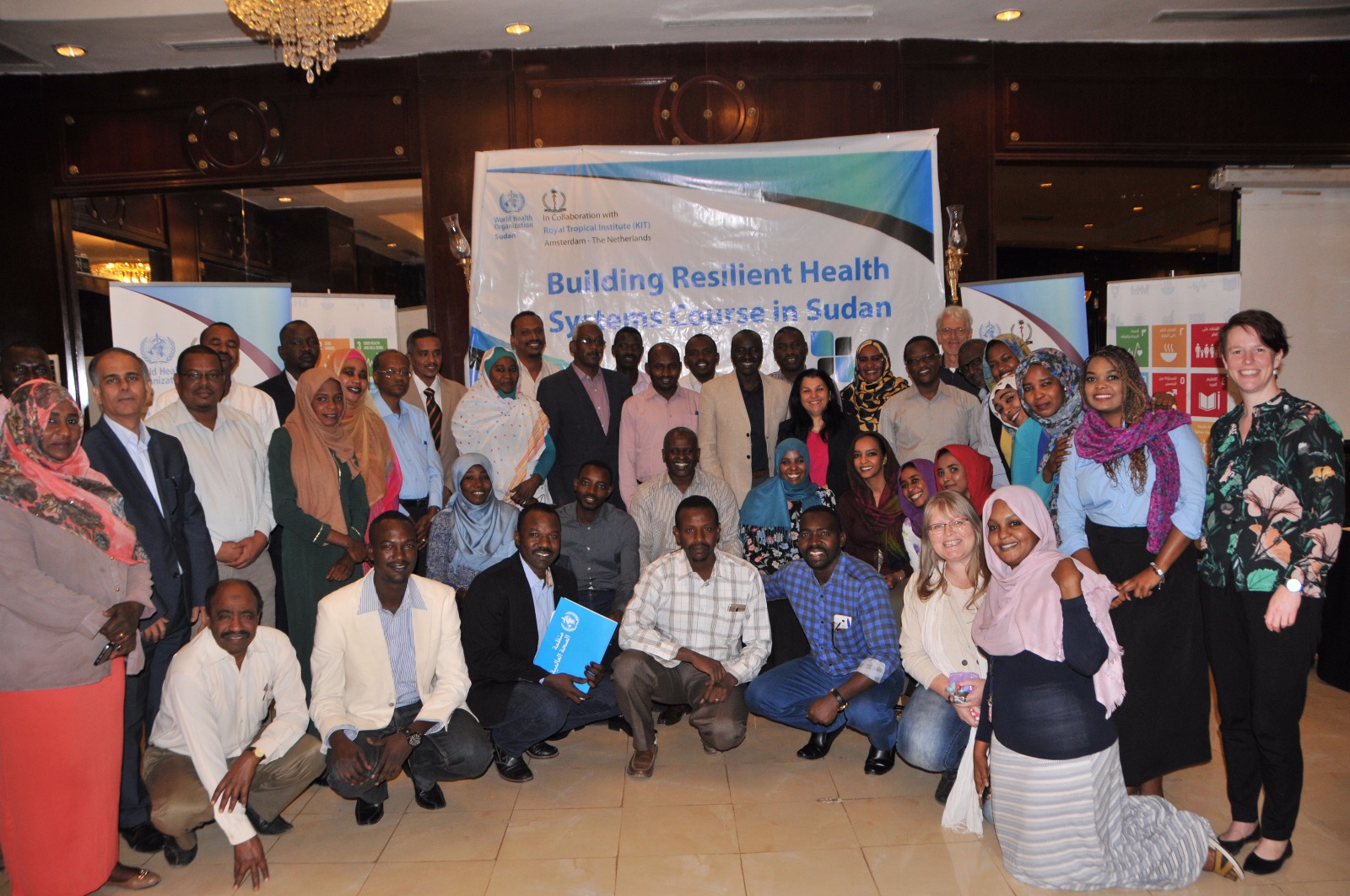 Participants playing the "health resource allocation" game (Photo: Isra Muzamel/WHO Sudan).
Participants playing the "health resource allocation" game (Photo: Isra Muzamel/WHO Sudan).
From 4 to 14 March 2018, WHO Sudan and the Netherlands’ Royal Tropical Institute (KIT), trained around 30 of Sudan’s public health experts, mainly from the five states of Darfur, on how to strengthen health systems in their parts of the country supported by Qatar Fund. Participants joined from all parts of the health sector: government and international organizations, received training on how to strengthen health systems.
One of the participants, Dr. Mohamed Yusuf Musa, the Health Minister of West Darfur, commented: “This is the right course, for the right audience, at the right time. Darfur is in a post-conflict setting, so rebuilding the health system is extremely important. The simulations, examples, and exercises equips us participants with the tools and strategies we need to go back home and make real change.”
During the ten-day event, trainers and participants discussed and learned about universal health coverage, health resource allocation, the influence of international aid on health systems, the humanitarian development peace nexus, emergencies, human resources, community involvement, and the pharmaceutical field.
Course facilitator Annemarie ter Veen: “For me, the best thing coming out of these ten days is the fact that a large group of diverse health professionals had the opportunity to think about a systems approach to health resilience. It’s not just finance, or human resources, or supplies; all pillars of a resilient health system are interconnected in this course. Participants come from different geographical backgrounds; they work for different health sector actors like the Federal and State Ministries of Health, WHO; and they have different medical specializations. Plus, the level of experience really elevated discussions among participants and facilitated a great exchange of ideas.”

The trainers used a mix of presentations, group discussions, exercises, case studies, and a final presentation to transfer the maximum amount of knowledge. One particularly creative method was the so-called “Health Resource Allocation Game”, which simulates a health system at provincial/state level. In the game, health resources are limited and players have to make difficult choices to cover people’s needs.
Dr. Naeema Al Gasseer, WHO Representative in Sudan, concluded: “All of WHO’s work ultimately aims to help countries build health systems that are resilient, strong, and that protect people’s health. We were delighted to co-organize this workshop.”


